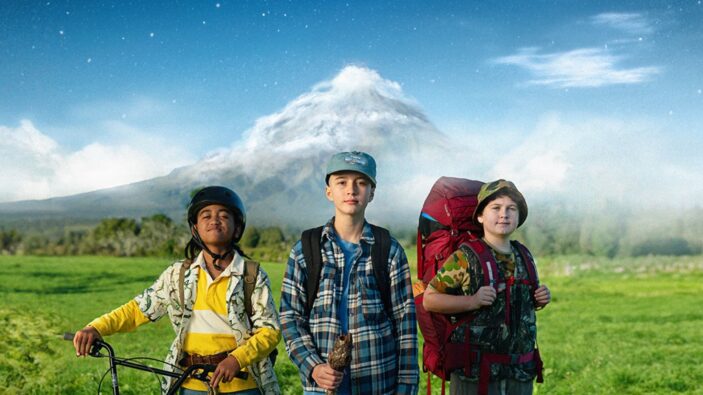
Given that Rachel House so consistently makes an impression on screen with her oft-deadpan delivery, it stands to reason that her move behind the camera garner significant interest too. Though the regular Taika Waititi collaborator has a slew of short films under her belt, The Mountain stands as her debut in feature filmmaking, with the result proving a warm, welcoming experience that speaks to Māori culture and the whimsical nature of adventuring children.
Despite the age-old “rule” in cinema that you shouldn’t work with animals or children, House lets her young cast lead the way here – her experience as an acting coach for child actors likely branding her with little fear – as The Mountain details 11-year-old Sam (Elizabeth Atkinson) and her quest to connect with her Māori culture. Sam is currently undergoing chemotherapy for cancer, and as someone who is half Māori and half European New Zealander (Pakeha, as it’s traditionally known), and with no connection to her Māori father, she hopes that climbing Mount Taranaki (Taranaki Maunga) will heal her and set her on a path to uncover who she truly is.
With the help of fellow patient Peachy (Sukena Shah, a real find), Sam sneaks out of hospital and takes off for Mount Taranaki with Mallory (Reuben Francis), who’s similarly Pakeha and is working through the loss of his mother with his grieving father (Bryan Coll), and the boisterous Bronco (Terence Daniel), who helps Sam connect with her roots. The film hits expected beats along their journey as they develop their friendships and form a better understanding of what they are individually going through, but such narrative familiarity – which even extends to their parents catching wind of what’s happening and trying to go after them – doesn’t take away from the genuine warmth that House creates.
And as whimsical as the film is, it never loses itself to an overt sense of schmaltz as House grounds proceedings with a realistic nature. The lead performative trio of Atkinson, Francis and Daniel speak to their own excitable youth, which then further extends to older viewers as the pure joy of relating to that childhood joy is palpable; remember going outside to play? House sure does, and she wants us to remember a time of simple abandon.
The complexity of the film is rather surprising given its child-friendly mentality, but that’s part of the beauty of The Mountain, that it doesn’t talk down to its younger viewers, treating them with the emotional honesty they deserve. And as much as House’s story – sharing screenwriting credits with Tom Furniss – proves deeply important to Māori people and their connection to the mountains, which stems from the belief that the formations inhabit their ancestors, there’s a universality to the story in Sam looking to Mount Taranaki as a source of healing and understanding; a symbolic journey I suspect many of us can relate to.
![]()
![]()
![]()
![]()
![]()
The Mountain is now screening in Australian theatres.
